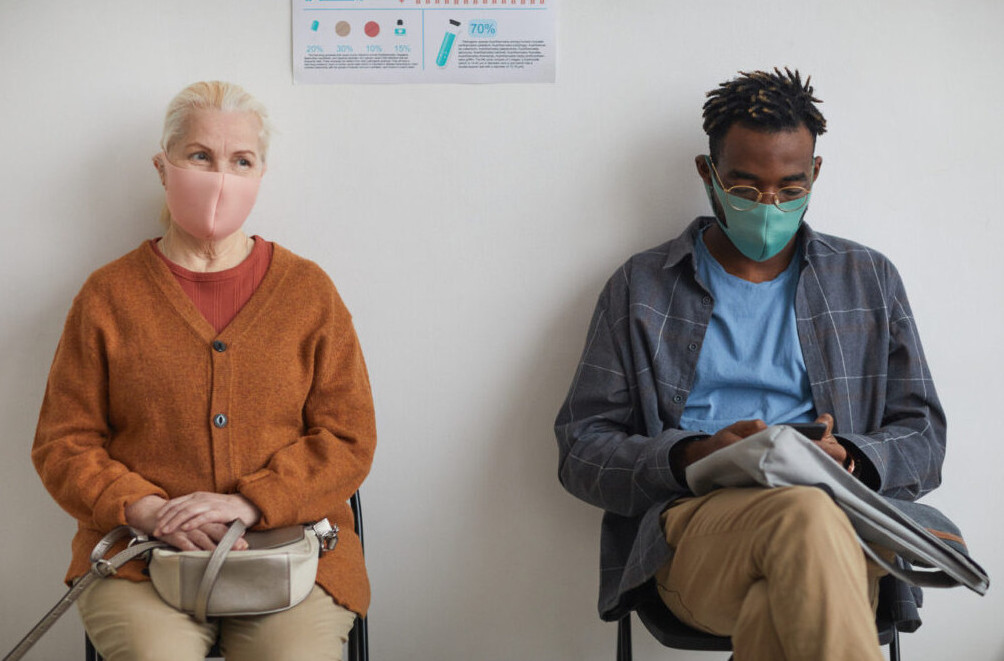The U.S. leads the world in medical technology, surgery advancements, and scientific research output. Indeed, we have one of the best healthcare systems worldwide. Thanks to this, life expectancy has increased by an average of 2.3 years over the last two decades. Survival rates have also risen dramatically for most major chronic diseases. This includes circulatory diseases, metabolic disorders, and neoplasms, especially endocrine cancers. The future of American healthcare seems promising.
However, there are still important equity concerns that need to be addressed. Despite the encouraging figures, life expectancy and disease outcomes don’t pan out equally for all populations. There are still glaring examples of health disparities across the country. Socioeconomic factors such as age, ethnicity, education, and income are strongly connected to increased mortality, lower life expectancy, poorer mental health, and adverse disease outcomes.
Different populations are disproportionately bearing the burden of preventable or treatable medical conditions. We can’t claim a genuinely efficient and equitable healthcare system until everyone has fair access to medical resources, irrespective of zip code or socioeconomic status. The elderly are a prime example of a population affected by health disparities. Various environmental and socioeconomic factors come into play to make healthcare resources inaccessible to senior patients.
Seniors are also more likely to require additional doctor’s visits, as age is a significant risk factor for multiple comorbidities. What can be done to ensure vulnerable populations receive the medical care they need? We should direct our attention to primary care first. Primary care providers can play a crucial role in improving outcomes and health equity for all patients.
Are you looking for quality medical services? At Primary Medical Care Center, we leave no patient behind. Call us at (305) 751-1500 or use our contact form for more information.
How Primary Care Can Drive Health Equity
Primary care providers can significantly influence the disease outcomes of patients with their diagnosis approach and medical recommendations. There are a few key ways PCPs can use their position to help patients access equitable treatment:
- Increase awareness of medical bias. Every PCP should be well-informed about the different biases that affect medical policy, diagnoses, and treatment approaches. Increased awareness about these biases will help providers assist patients that may otherwise be excluded. Bias awareness also helps PCPs provide more comprehensive treatment plans for vulnerable populations.
- Acknowledge the health disparities between different socioeconomic groups. Understanding the unique health challenges specific to each community is key to providing individualized, efficient treatment.
- Know that improving health equity is a multifaceted effort. PCPs play an important role in improving health equity. But they aren’t the only contributing piece to the puzzle. Reaching equity entails collaboration between providers, physicians, as well as political forces.
- Avoid rushed medical diagnoses. Disease outcomes and life expectancy rely heavily on PCPs providing comprehensive, well-documented, and personalized diagnosis and treatment plans. A good primary care provider should take their time to thoroughly asses their patient’s medical condition and history. Good communication between PCPs and patients is also crucial for increasing a patient’s medical literacy and treatment adherence.
- Monitor the effectiveness of equity initiatives. PCPs need to take an honest look at their work and efforts. Not all approaches will work equally well for every patient. Designing a repertoire of effective go-to solutions takes time, but the efforts are well worth it.
Health Equity and The Wider Picture
Primary care providers can positively impact their patient’s health outcomes. However, the burden of change shouldn’t fall on the primary providers alone. The problem runs deeper than the primary care sector. Only by treating the root causes can we get rid of the problem.
First, we should also focus on how our healthcare system is set up. Under the current fee-for-service model, physicians are incentivized to work long hours and keep a jam-packed schedule. Unfortunately, this forces medical professionals to prioritize quantity over quality of care. PCPs are overworked and aren’t given the proper resources to assess each patient thoroughly.
Secondly, we need to prioritize healthcare quality most of all. Patient wellness and long-term health outcomes should always come first. Increased awareness of a patient’s unique environmental, social, and health factors will also increase healthcare accessibility. Proper diagnosis eliminates excess or unnecessary services and tackles the major issue of healthcare waste in the U.S.
Finally, we must strive for extensive sociopolitical change to reach true equity. This includes a widespread effort to combat discrimination and poverty. We also should fight for better education and healthcare literacy for all age, ethnicity, and income groups.
If you desire quality, personalized treatment, we’re here to help you! We approach complex medical cases through a wide lens and prioritize effective physician and patient communication.
Need a second opinion on your diagnosis or treatment plan? You can reach us at (305) 751-1500 or use our contact form. We’re always happy to assist our patients and provide a professional, comfortable environment.
